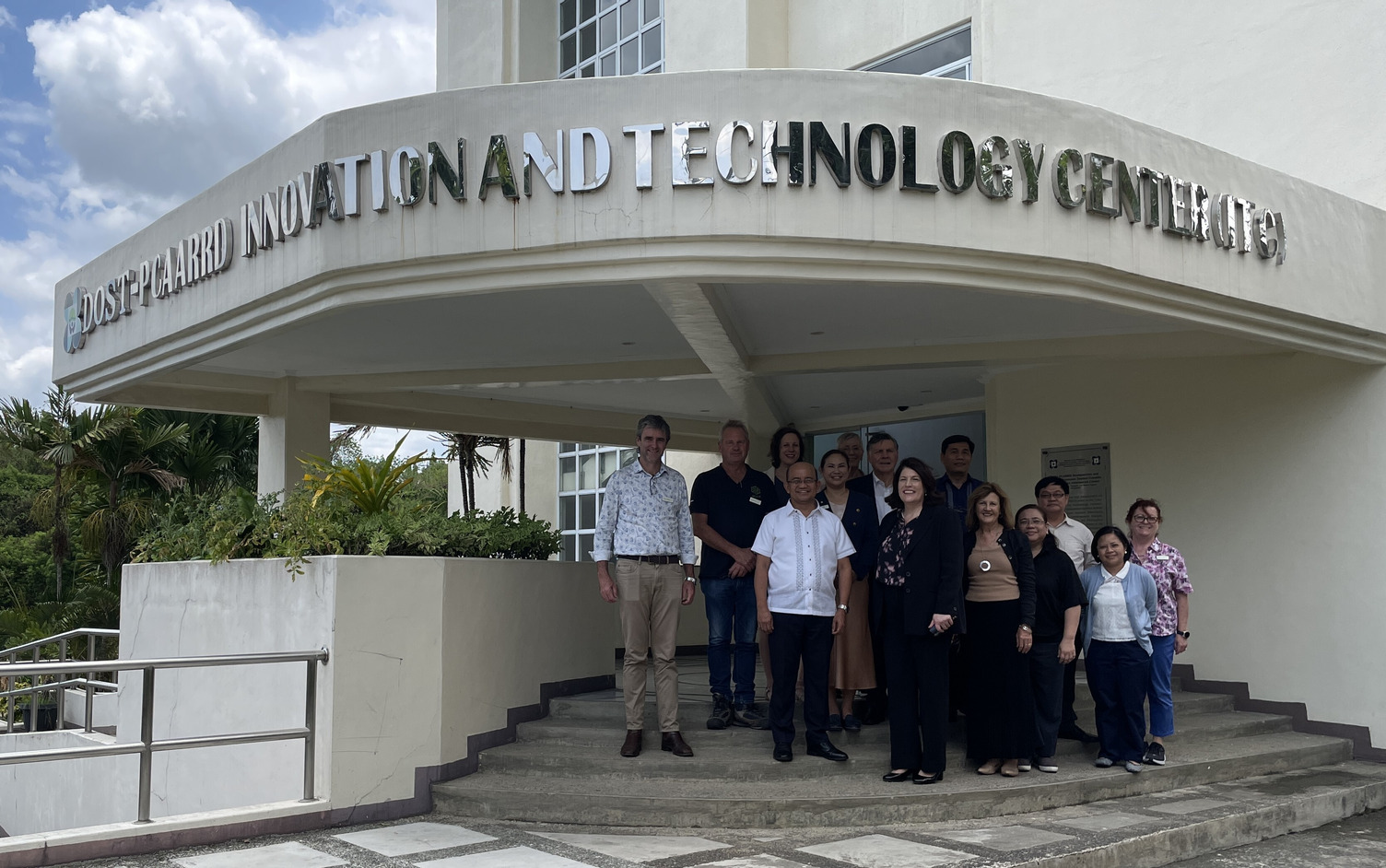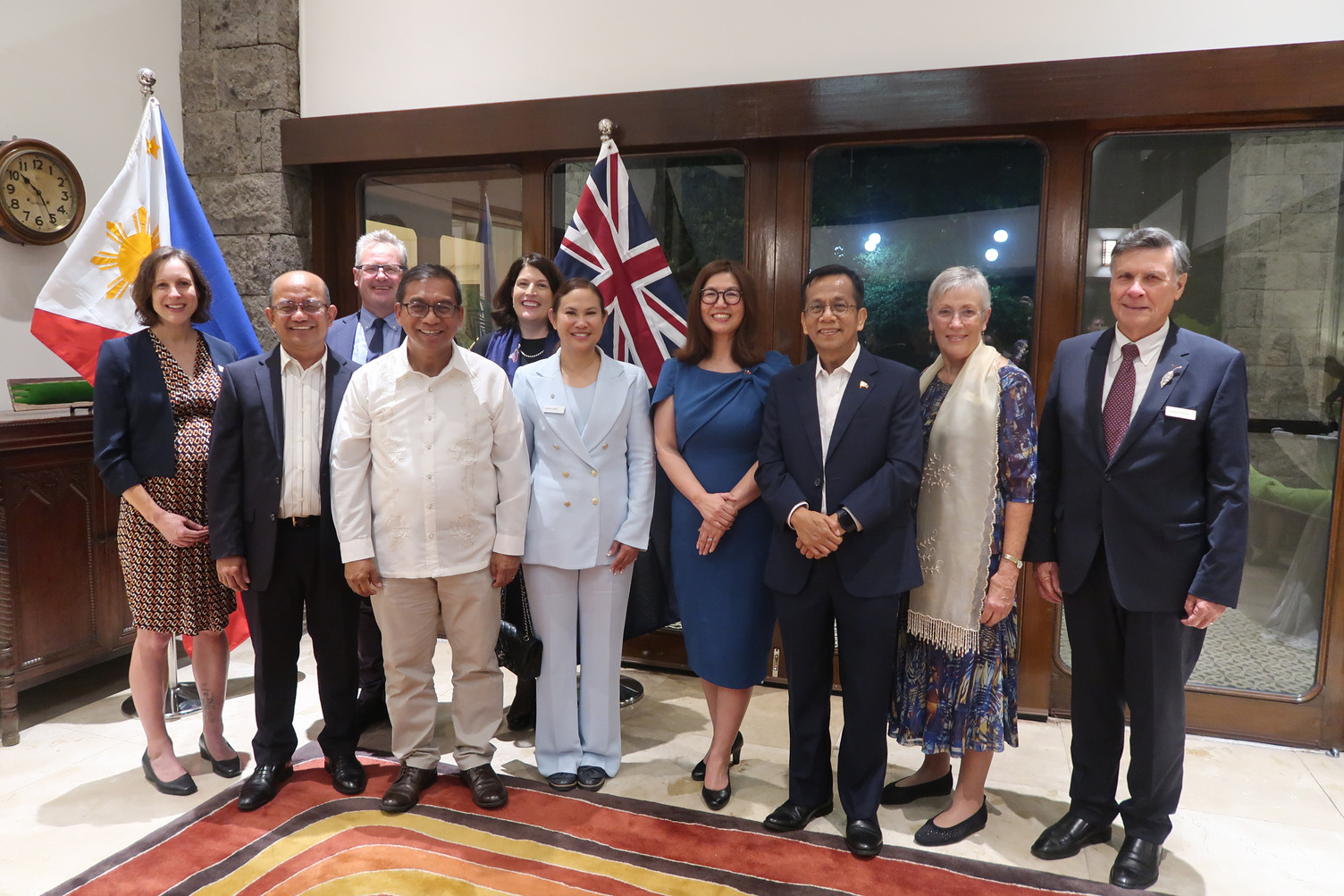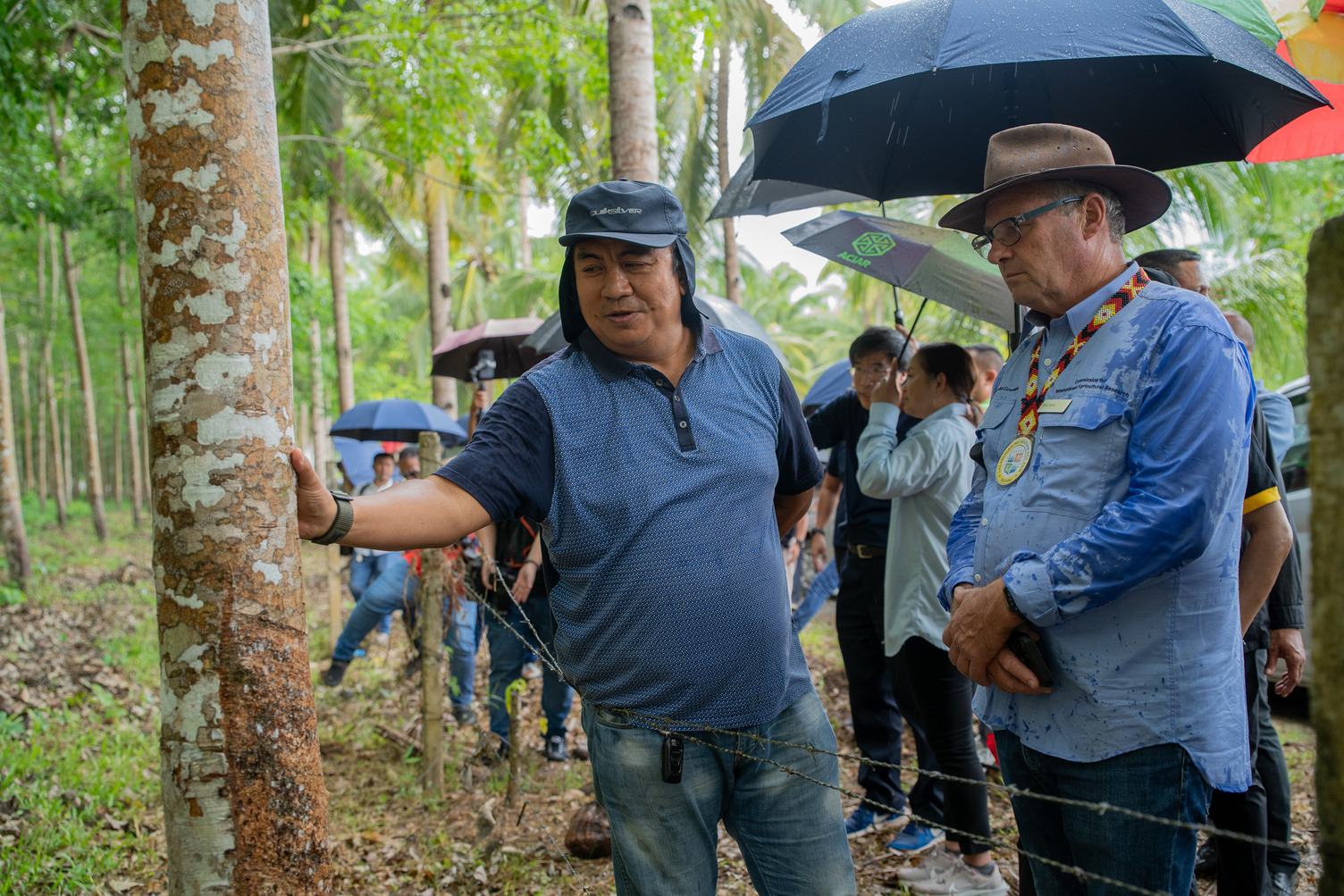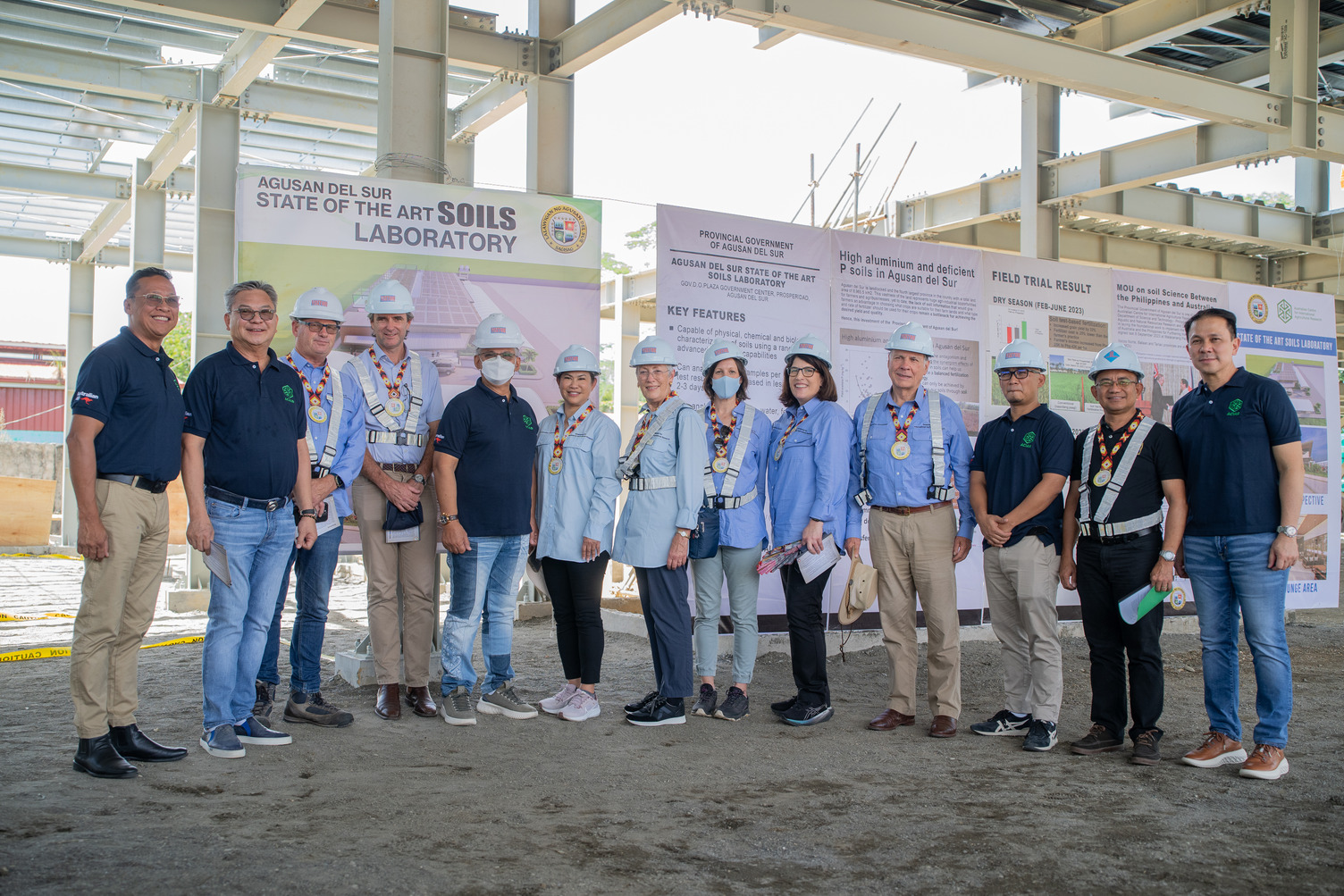Australia’s (Commission) visited the Philippines in May to discuss research priorities and explore opportunities for further Australia-Philippines collaboration in the agriculture, aquatic and natural resources sector.
The Commission comprises 7 leading experts from Australia who provide advice on international agricultural research and development issues to Australia’s Minister for Foreign Affairs.
During the visit, Commissioners met with high level officials and farming communities to understand the impact of ACIAR’s work in the Philippines, highlighting over 40 years of partnership in international agricultural research for development.
Commissioner Dr Beth Woods said that food insecurity remains a significant issue in the Philippines, with greater investment in agricultural research partnerships needed to help modernise agrifood systems.
‘Food insecurity continues to be a substantial problem for the poorest and most vulnerable in the Philippines. The local economy is still recovering from the COVID-19 pandemic, and recent natural disasters, like typhoons, along with ongoing biosecurity challenges have made food production increasingly challenging, especially for smallholder farming communities,’ said Dr Woods.
‘Modernising the country’s agrifood systems to boost production and become more resilient to the impacts of climate change is a key priority for the Government of the Philippines. For this to happen, there needs to be more significant investment in agricultural research that will provide innovations and science-based approaches to intensify food systems sustainably.
‘Australia has a tremendous opportunity to further its agricultural science partnership with the Philippines to contribute to this strategic goal.’

In 1984, the Philippines became one of the first partner countries of Australia to host projects supported by ACIAR. Since then, in close partnership with the Department of Science and Technology – Philippine Council for Agriculture, Aquatic and Natural Resources Research and Development (DOST-PCAARRD), ACIAR has been investing and brokering agricultural research partnerships between Australian and Philippine researchers to improve productivity, competitiveness and sustainability of agrifood systems for human, environmental, and economic resilience.
‘It’s been invaluable for the Commission to travel to ACIAR project sites to see firsthand how the enduring research partnership and co-investment with PCAARRD have empowered rural communities to improve their lives. The partnership approach is a model formula for aid collaboration, and we hope it will drive future research efforts,’ added Dr Woods.
The Australian Ambassador to the Philippines, HE HK Yu, hosted a reception for the Commission, which was attended by ACIAR’s key stakeholders including Dr Renato Solidum Jr, Secretary (Minister) of the Department of Science and Technology who commended the enduring partnership between the two countries.

‘In an increasingly interconnected world, the importance of international collaboration in addressing agricultural challenges cannot be overstated. We are glad to have Australia on our side to advance our shared goals of food security, sustainability and innovation,’ said Dr Solidum.
‘DOST-PCAARRD and ACIAR’s commitment to excellence and dedication to improving livelihoods epitomise the spirit of cooperation and partnership essential for tackling the complex issues facing our global food systems.’
The Commission met with several key partners during their week-long visit, including the DOST-PCAARRD, the University of the Philippines Los Banos, the International Rice Research Institute, the Provincial Government of Agusan del Sur, ACIAR alumni, and private sector leaders and experts.
‘ACIAR and the Philippines partnership is exemplary. The unique component in our partnership with the Philippines is that we are coinvestors in our research initiatives, from the national level through the DOST-PCAARRD and at the provincial level, not only in infrastructure but also in capacity development,’ said Professor Wendy Umberger, Commissioner and ACIAR Chief Executive Officer.
DOST-PCAARRD Executive Director, Dr Reynaldo Ebora, said, ‘The DOST-PCAARRD and ACIAR partnership is a role model for international cooperation. Our collaboration is not just about shared resources and research results but about building a robust and sustainable partnership. It exemplifies how mutual accountability and dedication to delivering high-quality science can foster significant advancements in agriculture.’

The Commission also visited the Province of Agusan del Sur to meet government leaders, farmers and other stakeholders who are partners in implementing an ACIAR-supported project on soil and land management project in the province. The aims to boost household incomes for indigenous smallholder farmers in the uplands of southern Philippines through the introduction of sustainable and profitable rubber intercropping systems, capacity development and policy support.
‘We [the Commission] were impressed with how ACIAR-funded efforts have significantly advanced local capacity in Agusan del Sur and beyond, enabling communities to excel in designing and implementing sustainable rubber-based cropping systems,’ said Dr Woods.
‘This empowerment not only enhances economic returns and contributes to poverty alleviation but also fosters a deeper understanding of optimal cropping strategies tailored to local resources. The findings are poised to influence policy and drive sustainable development, ensuring a prosperous future for rubber production and smallholder farmers alike.’

Building on the positive outcomes of the project, the Provincial Government of Agusan del Sur has invested in building a state-of-the-art soil laboratory to help its farming communities and support other provinces improve soil health.
Watch the video below to learn more about the Commission visit to the Philippines.
The Commission for International Agricultural Research comprises 7 Australian Commissioners who provide collective decision-making and expert advice to the Minister for Foreign Affairs in relation to program formulation for agricultural research and development, priority setting, funding and other matters as requested by the Minister. .




